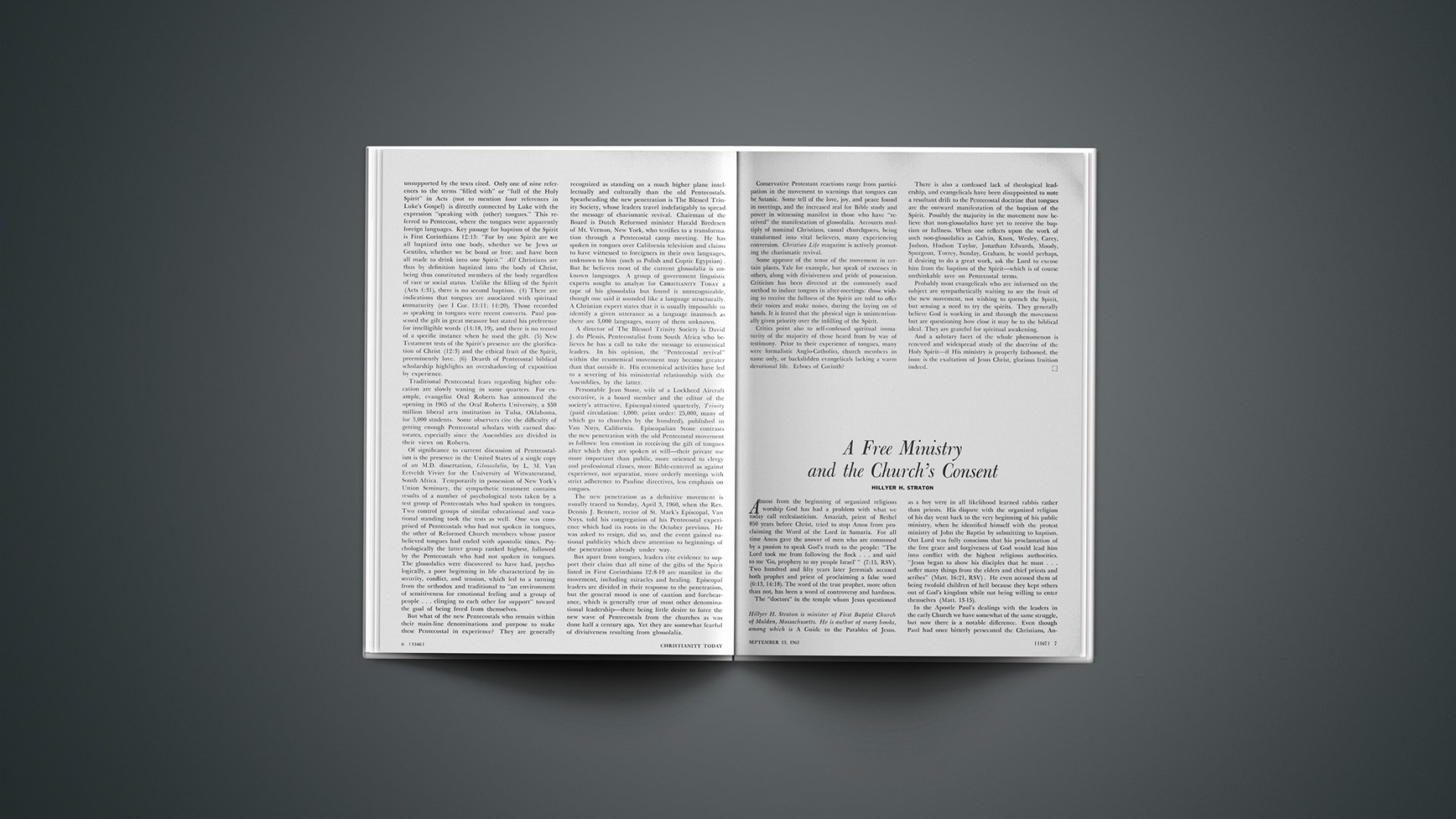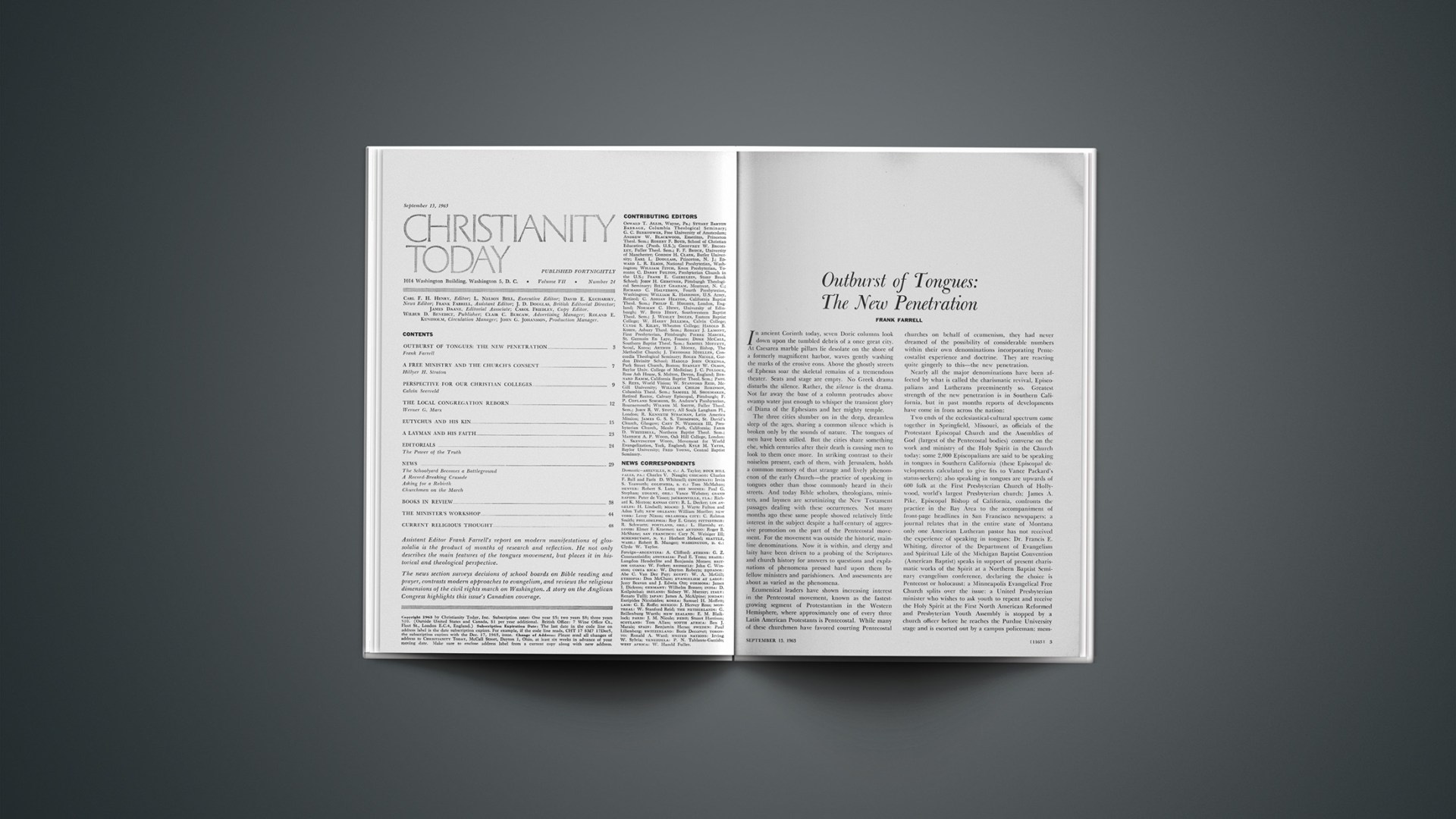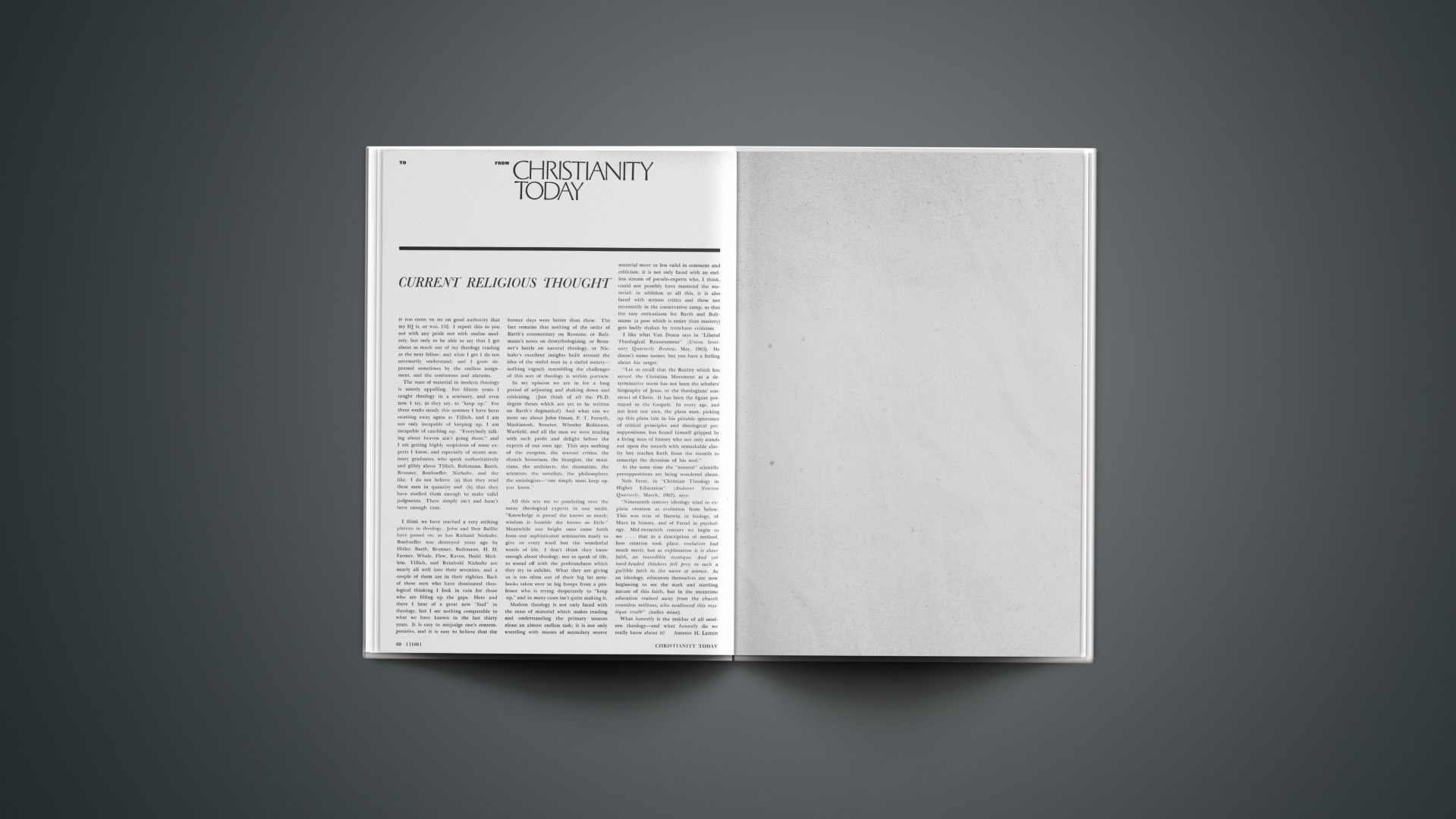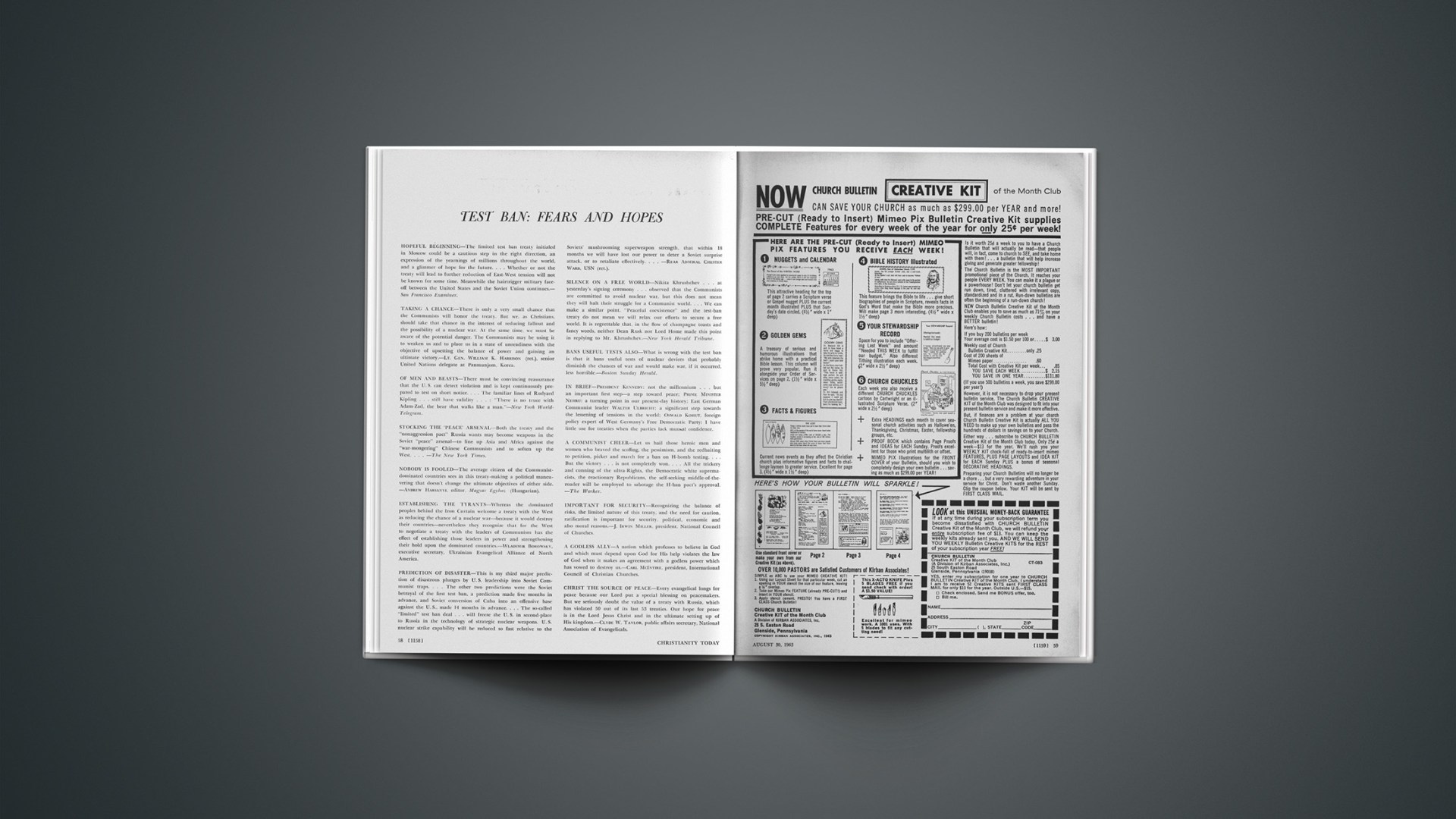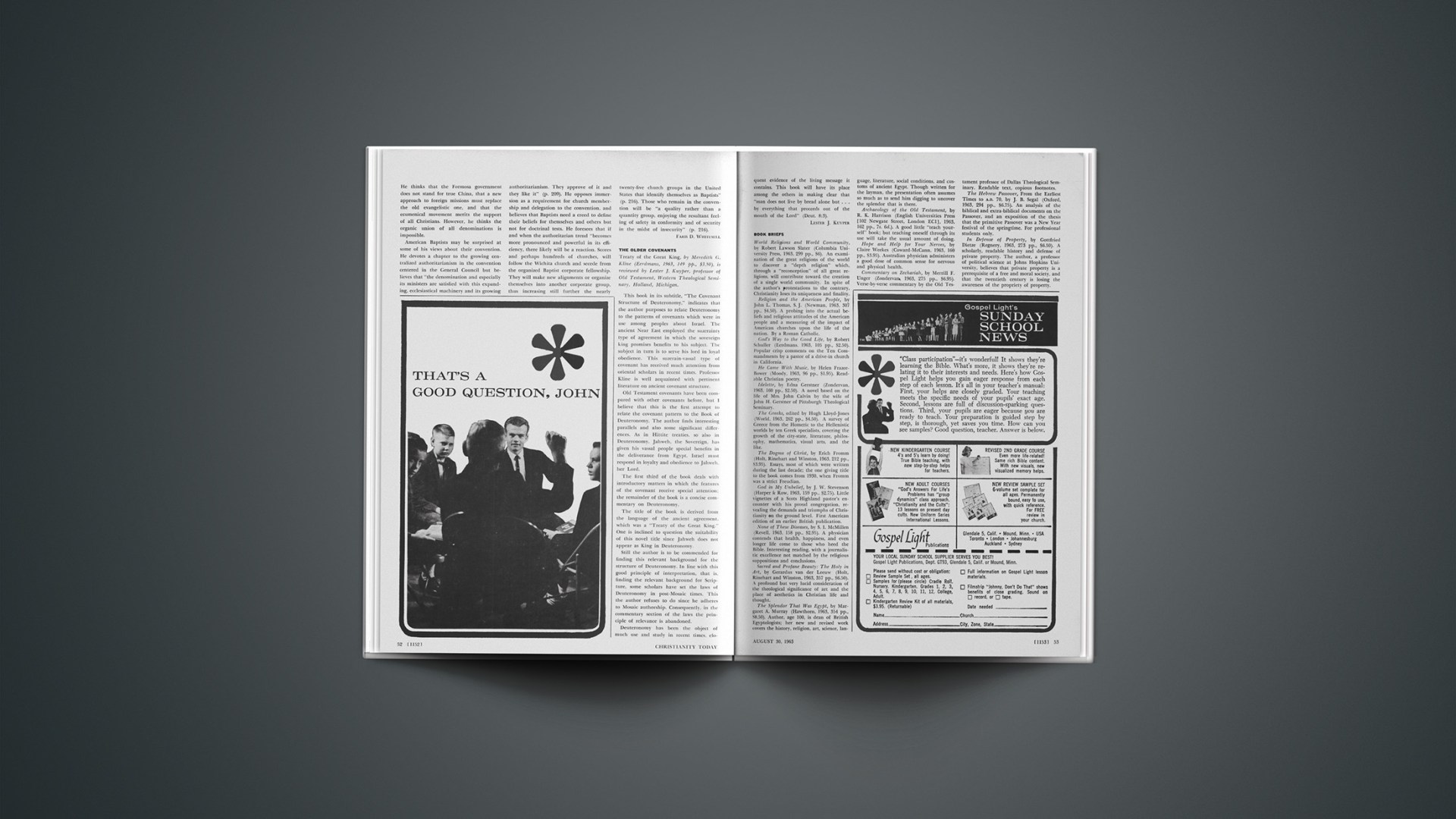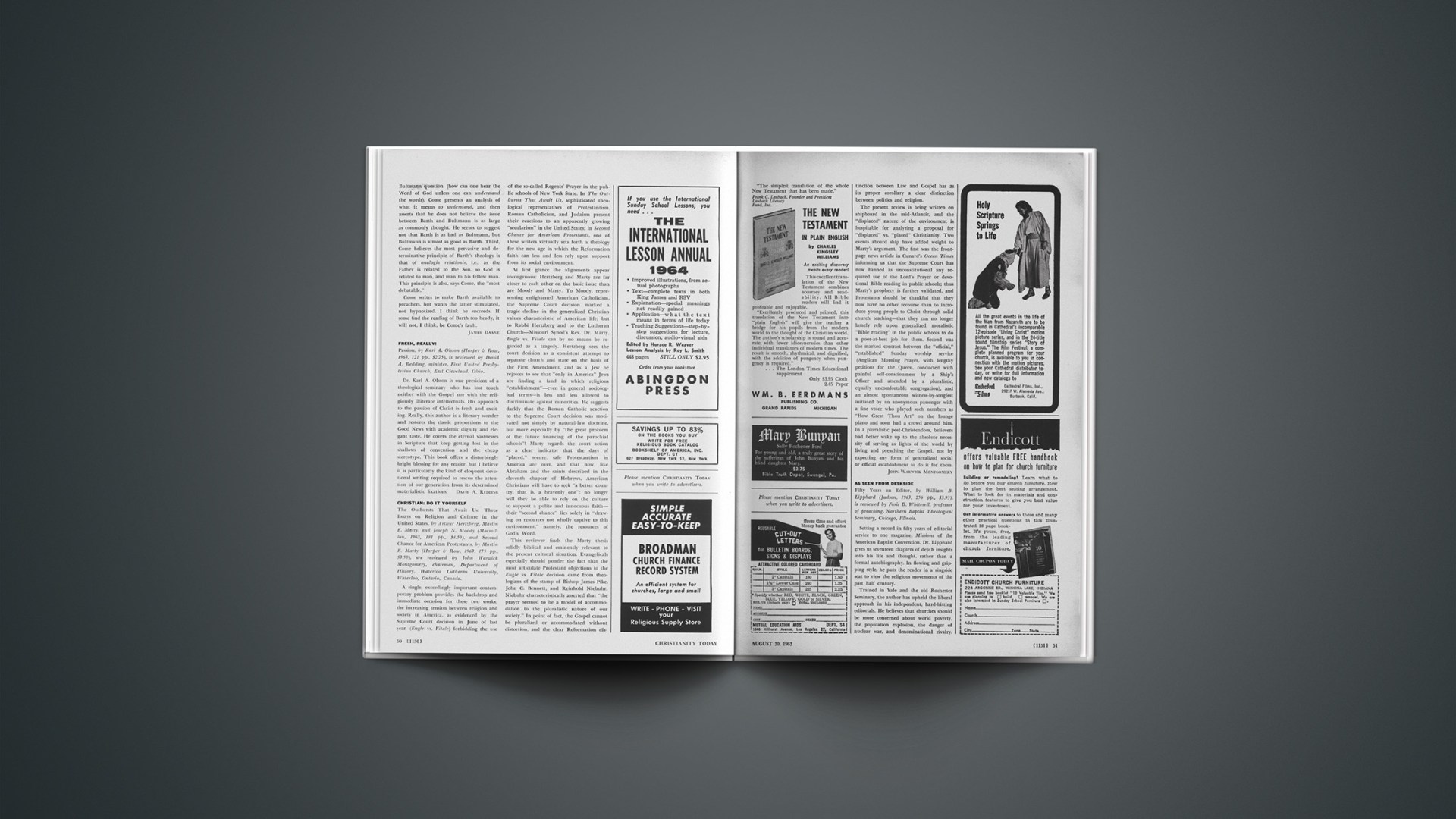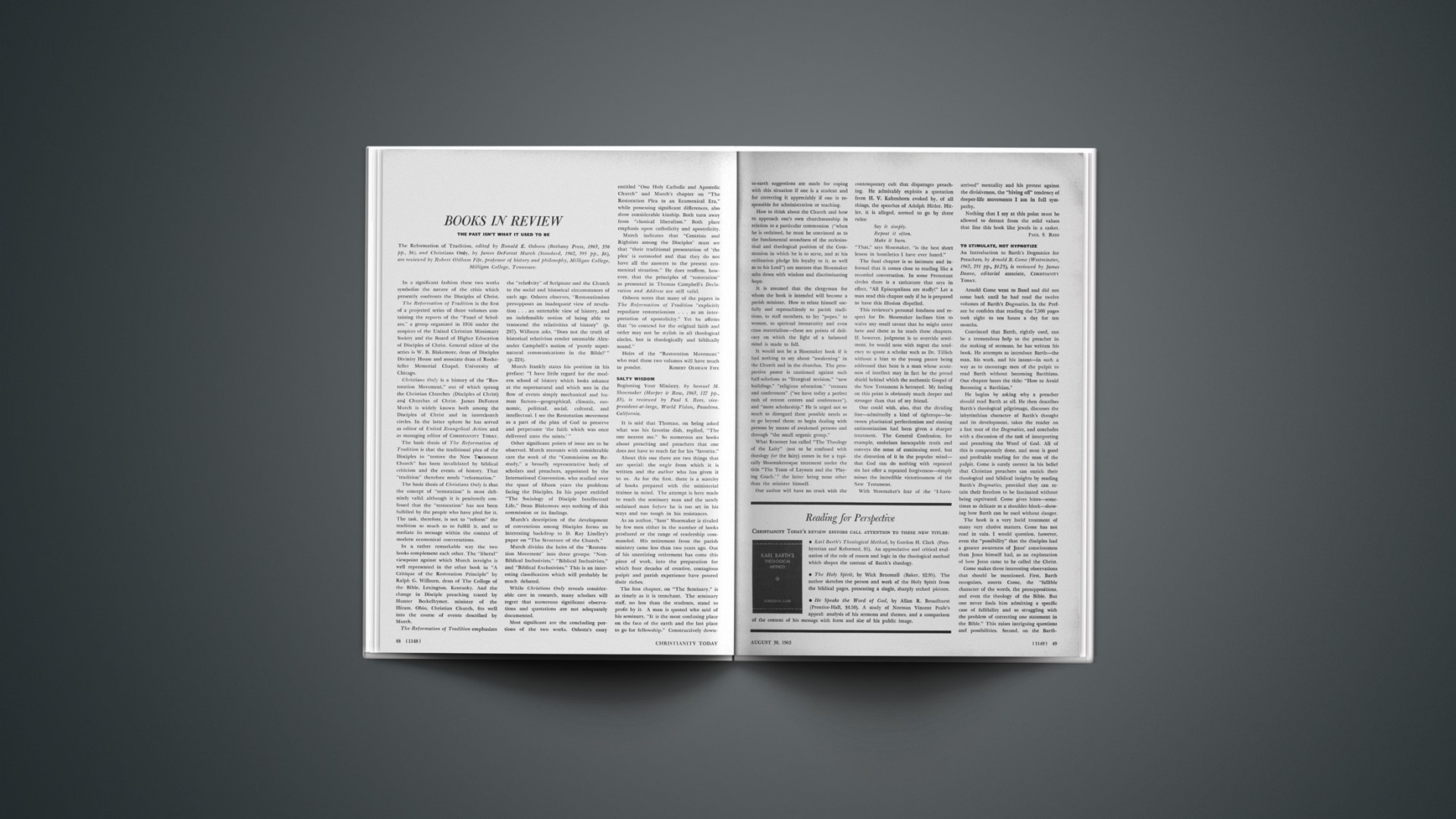It would be wise for would-be Christian colleges everywhere to examine themselves whether they be in the Spirit of God or driven on by some unholy spirit.
There is one unholy spirit which has captivated higher Christian education again and again, beginning with the Christian university of Alexandria in the second century A.D.: the appealing, respectable, vitiating spirit of Christian accommodation to the traditions of men. I am not talking abstractions. This spiritual force caught me at college, and maybe it will catch you. It is the driving concern to combine Christianity with the best that has been said and thought in the world, the moving attempt to fuse into one grand product the Christian faith and centuries of general human culture. And this catholic, synthesizing spirit has a devastating influence upon a Christian education. How so?
This tempting, synthesizing perspective tacitly assumes that broad areas of human achievement are a religious no-man’s-land and thus can be safely tucked under an inviolate compartment of Christian truths which have the last word on supernatural questions. Synthesis presupposes a compartmentalization of reality, and therefore in education works with the idea of certain naturalized, neutralized fields of learning, having kicked Christian faith in God upstairs to an honorable presidency; and it is precisely this built-in split, the kind of separation behind the combination, that deranges an education committed to having all knowledge integrated in Christ. No matter whether you patronizingly “make room for faith,” as Kant said, or give God, theology, and ethics a solidly papal, authoritarian position above subordinated “natural” arts and sciences, the profaning damage is done to education: certain studies are conceived of secularly, as being extrinsic to religious commitment, while revealed truths and their human interpretations are elevated, isolated, and made over-rationally airtight.
Historically a willing Christian synthesis with “good” ideas and products foreign to Jesus Christ has always led to a synthetic Christianity, the biblical Gospel adulterated. When Clement and Origen, sincerely seeking to raise their Christian catechetical school of the second and third centuries above the level of sancta simplicitas and to make it apologetically attractive for unbelieving intellectuals, invoked the best of Greek philosophy as handmaiden, it was not long before the handmaiden took charge of the marriage; and the resulting gnostic philosophical theology plagued the Church for ages with Platonism, Aristotelianism, and general humanistic intellectualism.
So today, when the spirit of accommodation to the traditions of men infects a college (maybe when it grows big and successful?), you may expect (1) that the purity and power of God’s Word will be compromised by the reflection done upon it, and (2) born out of the fascinating robbery of gold from the Egyptians—especially if no “infallible” Roman church is present to draw the limits and curb the pride—will grow a vaunting intellectualism, an unlovely frontier of sophisticated elite, orthodox on demand, but proud of what man by himself apart from Revelation can do.
Freedom With No Compass
Another unholy spirit that creeps like Sandburg’s Chicago fog on cat feet over a Christian campus is the spirit of scientistic Modern Freedom. Conceived in Renaissance magic and anti-Scholastic science, this evil spiritual dynamic is frankly unbiblical and at heart revolutionary. It is our Zeitgeist, the contemporary dunamis, dynamite raging in the wind on all continents. Freedom to revolt! Freedom to be an existentialistic question mark. Freedom to sell your neighbor for scrap if it further the Uebermensch. Freedom to have a planned economy, planned marriage, planned birth, and planned euthanasia by 1984.
What is hard to understand is why those who live and move and have their being in the grip of such a spirit still wish sometimes to parade under the old opprobium “Christian.” If a church, if a college, if a person would really be free from nineteenth-century values, eighteenth-century hymns, seventeenth-century creeds, and the six-teenth-century rediscovery of a 2,000-year-old book of maxims, myths, and local histories, for a twentieth-century unitarian pottage, why not let a first-century name go, too? Would it not be more honest, parasites? Or is it more dignified to let the Latin biblical mottoes engraved on the cornerstones, like old soldiers, just fade away?
Students, understandably impatient to be caught up in our vigorous world and its mad problems, check your angels before you drop the parental traces. With all your getting at college, get Wisdom—let Wisdom get you, because the seductive whirlwind of Modern Freedom is a strong, beating wind, and it is suicide. That is what Santayana—no church father but a reprobate skeptic—said before the First World War: Modernism is suicide for Christianity. “It is the last of those concessions to the spirit of the world which half-believers and double-minded prophets have always been found making; but it is a mortal concession. It concedes everything; for it concedes that everything in Christianity, as Christians hold it, is an illusion” (Winds of Doctrine, Harper Torchbook, 1957, p. 57).
The Re-Forming Spirit
What perspective now envelops a college filled with the Holy Spirit? Can one say, “Here it is or there it is” (Luke 17:20, 21)? Shall not every designation fall prey to the factionalism of “this is of Christ, and the other is of Apollo, of Cephas or Paul” (1 Cor. 1:10–13)? We are under God’s command “test all things and grab ahold of what is good” (1 Thess. 5:21), not so much an identification of the elusive way God works as a call to reconsecrate all hearts in the revealed, foolish Wisdom of our undivided Lord. Are the fruits of the Spirit unknowable in education? Would you know what spirit drives a teacher and student held in the biblical vision that all life is lived before Almighty God, all life is religion in operation, all life including study itself is to be agape for Christ in action?
To be holy is to be set apart for God. To make holy is to call out, to re-form, joyously to present something specially for God. Those in whom the Holy Spirit dwells, saints, holy ones despite sin, will charismatically be busy sanctifying, like Midas transforming whatever they touch (unlike Midas) into living sacrifices to Creator God. At least this will be the calling they recognize, the grounding, pushing motive power to their work. And everything lies there to be set apart for God: sex, race, chemical reactions. In fact, every creation of God is good, says Paul to Timothy, not worthless if able to be received with thanksgiving, for it is made holy by the creative Word of God and prayer (1 Tim. 4:4). To saints the whole world is a sacred burning bush where God speaks marvelous things, to be enjoyed. But human acts and products, institutions and traditions which have trampled God’s burning bush with their shoes on, twisted and profaned it, cannot be enjoyed by saints, not even tolerated as something “secular” next to what is hallowed, for what cannot be received with outright glad thanksgiving must be either rejected or re-formed out of the grip of sin, made holy again for God. And I pray, says Paul, that your love for Christ may flow over into your knowledge, every perception, more and more, so that you may discern the differences between what is holy and unholy (Phil. 1:9, 10).
This sharp double edge of love for the Holy One, the passionate thrust of this re-forming spirit involves more than evangelical witness to the unsaved sold and renewal of a sagging Church. Reformation is global in touch, that is, has intense concern for all creation groaning and laboring under sin, as Romans 8 has it, and understands as its reasonable service bringing all human activity subjected to the feet of Christ. Savonarola was not a reformer but a revivalist used mightily by God in fifteenth-century Florence to convict men of sin, to challenge the immoralities of Pope Alessandro VI, to get men to burn their paintings and quit godlessness. Like Savonarola Luther preached sin and salvation, stirred the self-indulgent to come alive in Christ; and he re-formed song—what a salvage ad gloriam Dei! John Calvin too brought God’s open Word to bear upon more than the Church in Geneva, disciplining, re-forming social, economic, aesthetic, and political life by the Word’s directing norms. The most sacred profession a man can choose, says Calvin, is politics, to become a civil magistrate, an “ordained minister of divine justice,” directly under God’s law protecting the poor, weak, and oppressed irrespective of their belief—this is truly holy work, governing the world as God’s vicegerent (Inst. IV. xx.4, 6).
The only ungrudging rationale as well as the necessary, qualifying characteristic for a genuinely Christian, full-orbed college education, I think, is this re-forming spirit with its cosmic outreach for the love of Christ as Sovereign Lord of the whole creation. Jesus himself asked no less of us. No one pours new wine into old wineskins, he said, for the new wine will burst the skins and seep away, and the skins will be worthless too; you ought to put new wine into new wineskins (Luke 5:37, 38). We Christians have the new wine. What needs fashioning are the new wineskins for sex in psychology, for race in sociology; re-formed wineskins in chemistry, too—or did you think the hydrogen bomb is not evilly ingenious chemistry? Difficult, certainly—partly because, as Jesus said, no one who is drinking old wine wants new wine right away; he says, “The old wine is good enough for me” (Luke 5:39). Yet teachers and students with whose spirits the Holy Spirit of God testifies (Rom. 8:16), how can they not be driven to make all things holy, acceptable to God?
Something Earth-Shaking
I once heard Karl Barth say, “The best apologetics is a strong dogmatics.” Or as Abraham Kuyper puts it: you forsake the richness of the Christian faith if all you do is saunter around in other people’s gardens with a scissors cutting off a piece here and a piece there to make your bouquet. For God’s sake! grow your own flowers! (De Gemeene Gratie, III, 527).
We Christians must not let contemporary unbelievers condition our culture; it is mistaken sympathy or policy or whatever to force our Christian insights, adjusted, down inside their confining vision. To trust too easily the glittering results of a disbelieving culture is to play the biblical fool. And being our brother’s keeper, that is, being called to genuinely understand him, to live sensitive to his predicament, must not make us forget that we Christians have something earth-shaking and important to say ourselves, which needs painstaking development and careful application.
Besides, since the work we do is our Father’s business, in covenant with Him who blesses us to the third and fourth and hundredth generation, all the theories and products we develop must conform to biblical specifications, no matter the measure of the day. The vocation of God’s people in education is to build a highway for our God straight out into the desert, through the wasteland and rubble, so that the glory of our Lord may be revealed. Christian college education is not missionary activity to the unsaved but a workshop where Christians trade on their talents to become worthy servants, administrators of the world to which their Lord will soon be returning. And this is what the heritage of us protesting catholic, reformational Christians has always witnessed to in art, science, and institutions; it is this God-oriented, Holy Spirit-driven, Christ-focused study of the world and society at which we believers today, constantly re-forming, touchstoning to the biblical vision, are to be a building.
A Septuagint Approach
Needed for the Septuagint approach of Christian education are at least, say, seventy-two scholars who with unbending rabbinic concentration upon the cast and purity and purpose of their message steadily work together at embodying it plastically for the faithful and the faithless to see and read as they run. The Septuagint approach breaks with the attractive but futile individualism of one Christian here and another there going off bravely to infiltrate the educating world. Education by its nature demands concentration. Christian education will flower only where the Spirit has hands and eyes and ears and feet—all kinds of specialists—who are competent (piety does not cover incompetence, whether it be the botched exegesis of a poem or a messy appendectomy) and united not only by a common faith and biblical commitment but also by their breathing excitedly and wholeheartedly this unifying, re-forming spirit I have mentioned. The weakness in Christian educational impact at a Christian educational institution comes from the wedges between albeit confessing Christians, the fact that every scholar does what seems right in his own evangelical eyes, because they lack this common sense of religious direction and academic attack aimed at holy scholarship. If the Christian college has as its task to praise God not only with hallelujahs but in the difficult, time-consuming construction of Christian social theories, a Christian aesthetic, mathematics that bears out its unique and limited theoretical service in the kingdom of God, it must have more than a single educator to accomplish this; a Christian college demands a singleminded (uni-versity), re-forming community of, say, seventy-two scholars.
Basic to such a program, I think, is the orienting architectonic of an outspoken if soft-spoken Christian philosophy—not philosophy in the sense of lingual analysis nor the traditional Satan-spired philo-sophia (trying to know all things, like God) but a Christian philosophy that is born out of Solomon’s God-fearing request, “Give me, Lord, an understanding, discerning heart so that I may lead your people” (1 Kings 3:9) in politics, art, physics, and the rest. An articulated Christian philosophical systematics—not just a viewy Christian outlook but a wissenschaftlich, worked-out ordering and systematic analysis of the interrelated meanings of things—is a beginning for a working Septuagint concentration because it helps all the various sciences on their communal way. Maybe, if evangelical and Reformed scholars dug more into this kind of scandalous study instead of seeking a rapprochement with liberal Christianity or taking dialectical fishing trips with secular scholarship for its kudos, maybe then the Lord would bless us in ways our little eyes of faith cannot even imagine seeing.
Let no one mistake Septuagint concentration for isolation. The offensive Christian Gemeingut which it is our burden to develop must be translated into terms understandable by the rest of the world. That involves our knowing their language and having carefully scrutinized what especially they are mistakenly getting at in God’s world at the moment so that we can catch the locus of their problems and without self-righteousness bring our answers to their needs. The difficult business is to learn the language without accepting their Problemstellung in order to bring our strange news to each in his own technical tongue. Septuagint translation is not monologue any more than it is dialogue; translation is prologue really, prolegomena, what gets said before the other learns to read the text directly with open eyes. I mean that the Septuagint echo to the blues is not more blues turned sweet nor a Bach chorale today but Mahalia Jackson’s “I’m goin’ to muv-up a littl’ higher”; the Septuagint response to Tennessee Williams’ Baby Doll is not a Hollywood-censored Samson and Delilah plus moralisms somehow nor a silent censorship but maybe T. S. Eliot’s A Cocktail Party or an updated Scarlet Letter; the Septuagint answer to lingualized analytic philosophy is not more analytic philosophy Christianizedly twisted onto problems of “Grace” nor a nineteenth-century Hegelian idealism but a systematic investigation of created structures under God radically re-formed from the age-old traditions of men, which fastens upon the positive analytics’ little tempest with simple insight and then moves on to wrestle with more significant problems. I realize a twentieth-century Septuagint in most fields will sound to our contemporaries a little bit as Chaucer did to Francis Bacon, somewhat old-fashioned; but so far we can go, and then pray hard that the Holy Spirit will interpret those mumbled utterances to them.



